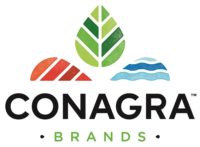At The Kroger Co., Cincinnati, achieving zero waste company-wide is something we’re passionate about. That’s why we launched our Zero Hunger | Zero Waste social impact plan in September 2017.
While our Zero Hunger | Zero Waste vision is relatively new, since 2010, we have accelerated our manufacturing waste reduction efforts to now have 33 of 36 manufacturing facilities diverting more than 90% from landfills.
Our zero waste commitment expanded to include our retail operations in 2013 and our logistics operations in 2016. Thanks to our associates’ dedication, we have achieved a nearly 80% waste diversion rate as a company today. This process has taught us several lessons, which can benefit all businesses looking to reduce waste impacts in their operations and their communities.
Set a clear, measurable target. Through our partnership with the U.S. Environmental Protection Agency WasteWise program, Kroger adopted the EPA’s definition of zero waste—diverting 90% or more of the waste produced away from landfills. This means the vast majority of the waste we produce will instead be sent for recycling, animal feed, composting and energy recovery purposes—away from landfills.
Be ambitious. Our vision for Zero Hunger | Zero Waste includes very ambitious goals around waste—to achieve zero waste in our company by 2020 and zero food waste by 2025. This serves as our “moon shot” to guide our work moving forward. While we may not know exactly how we’re going to achieve these goals today, they are a point of inspiration for our associates and partners.
Be realistic. Give yourself some time to meet zero waste targets. In many cases, businesses are already thinking about reducing waste and increasing waste diversion. But, if you’re going to set an ambitious target, make sure you have time to achieve it. Kroger set its company-wide goal to be zero waste in 2016 with a target to achieve the ambitious goal by 2020, however the company had a solid foundation with practices in place to support our goals.
Collaborate across the business. Kroger’s goal to be zero waste was driven by the central sustainability function with leadership support and through partnership with business leaders across the company. This buy-in and support ensures that all associates understand that the goal is a top company priority and the foundation for our work moving forward. At the same time, we can’t accomplish these goals without the partnership of our associates in all parts of the business, from retail operations to manufacturing engineering to logistics managers.
Allow for flexibility. As an operator of 2,800 supermarkets, 36 manufacturing facilities and 42 distribution centers, Kroger recognizes the importance of being flexible in how each part of the business and each type of facility can achieve zero waste. Kroger tailors the approach to reaching zero waste to each facility’s waste generation, production processes and operating parameters. For example, we have employed anaerobic digesters at two locations. One was implemented at a distribution center in California to manage food waste in the Ralphs and Food 4 Less divisions; the other to manage wastewater containing food waste byproducts from the production process at a manufacturing plant in Indiana.
Use data and performance tracking. Kroger uses data tracking to measure progress on our zero waste goal and to share our progress with stakeholders. By developing dashboards to measure work against our goals, we can readily share progress in formats that resonate with different audiences. We also report our annual progress to the EPA WasteWise program and in our annual sustainability report.
Celebrate accomplishments. We believe in sharing advice and best practices, so that our associates feel included in the company’s efforts to reach ambitious goals. For example, our manufacturing team has regular phone calls for each plant’s Sustainability Champions to share recent accomplishments and share best practices. We also recognize our associates in our internal communication channels and our Zero Hunger | Zero Waste awards.
While we’ve made great progress on our goal to achieve zero waste, we still have an exciting journey ahead of us, and are continuously looking for partners, best practices and ideas to help us along the way.




